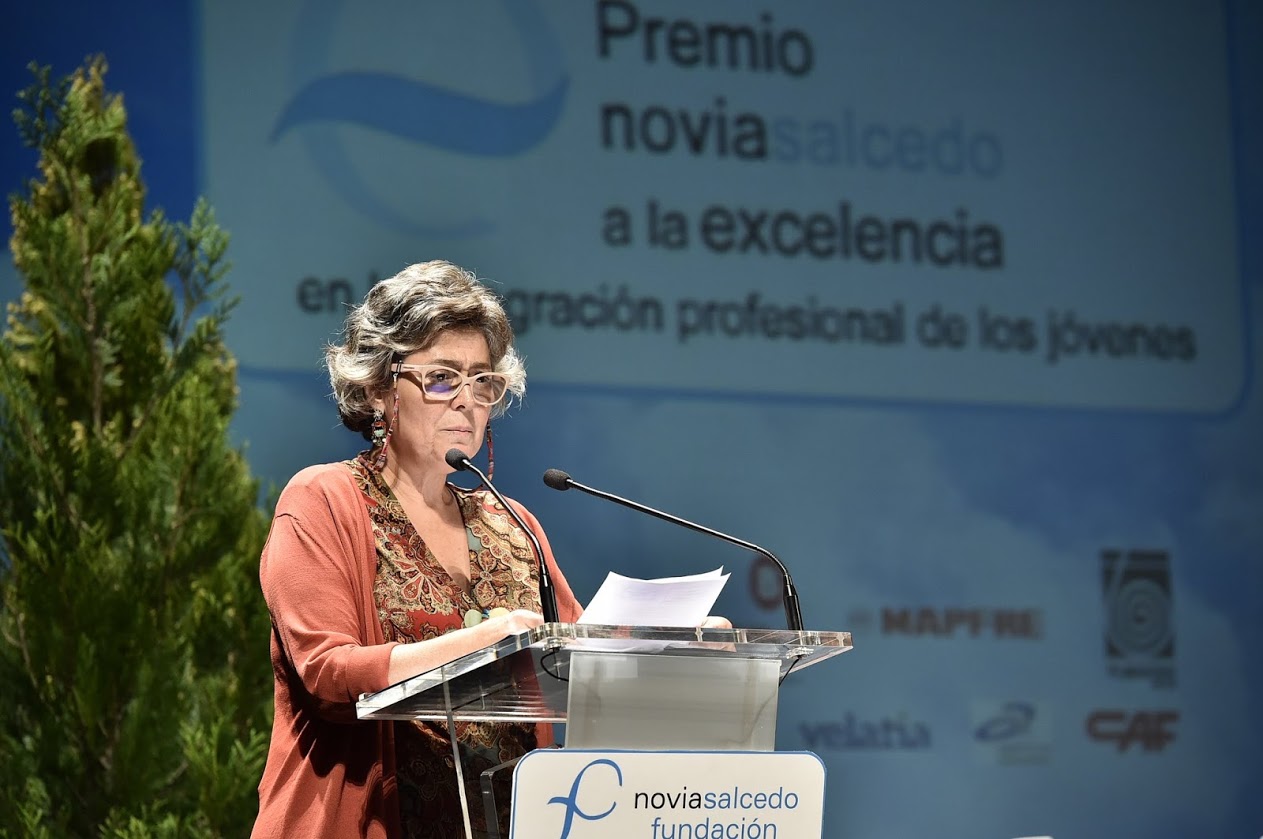The NoviaSalcedo Awards have a significant background in promoting employability. Do you think the Foundation is doing a good job in this regard?
The Novia Salcedo Foundation has always been a reference point in the effort to promote and connect social agents with a view to improving the employability of young people. With a long career in the field of improving employability through innovative programmes and approaches, the Novia Salcedo Awards represent an excellent method to boost and recognise all those agents and they are certainly of enormous value.
Training and integrating young people is one of the requirements taken into account for an enterprise to be worthy of our awards. Do you think the prize will help the winner in the future?
From my own experience, I am sure that a recognition, such as a Novia Salcedo Prize, is not only an incentive and a joy for the entire entity that receives it and its members but also a boost for the future. In 2009, the Tomillo Foundation won the Award to a social entity and it has always been a highly valued acknowledgement that has brought us great prestige as an entity that works for the integration and employment of disadvantaged young people. In this sense, the prize dedicated to companies that are involved in training and integrating young people is of particular relevance because of its recognition of the key role that enterprises must play in the future of employment for young people.
We have added a category that rewards the Public Administrations this year. Do you agree that public-private partnerships favour youth employment and integration policies?
The challenge of youth unemployment requires a systemic approach, based on a multi-sector and multi-agent view. We can only address such complex challenges through collaboration, bringing together the government, businesses, the educational system and training centres, as well as any other agents involved. Without a doubt, adding the Public Administrations to these awards is important, and will make it possible to visualise the best performances in this line of collaboration, thus encouraging new formulas and collaborative initiatives.
Women, green economy, work-family conciliation… are aspects that we assess carefully in SMEs. Do you see these as essential aspects in the development of small businesses?
These are essential aspects for every company that wants to exist in the present economic landscape and in the future and that wants to continue being an agent of sustainable social transformation. We have a long way to go in Spain in the field of job-family conciliation, equality and sustainability and acknowledging the positive actions in these fields carried out by SMEs helps to do away with the myth that this is only a matter for large companies. Improving the image of businessmen involves improving the reality of these factors in the fabric of SMEs, which are the entities that actually generate employment in our country.
Finally, why did you decide to accept the invitation to become a member of the jury of the Novia Salcedo Awards?
The Tomillo Foundation has always felt close to Novia Salcedo Foundation and we have greatly admired the rigour and good practices of the organisation, which has been and still is an example to follow in many aspects. The approach and the work of its team is, without doubt, a reference point in the sector. It is a privilege for me to be a member of the jury of their awards, which are so prestigious and closely linked to our social work and to youth employment.


